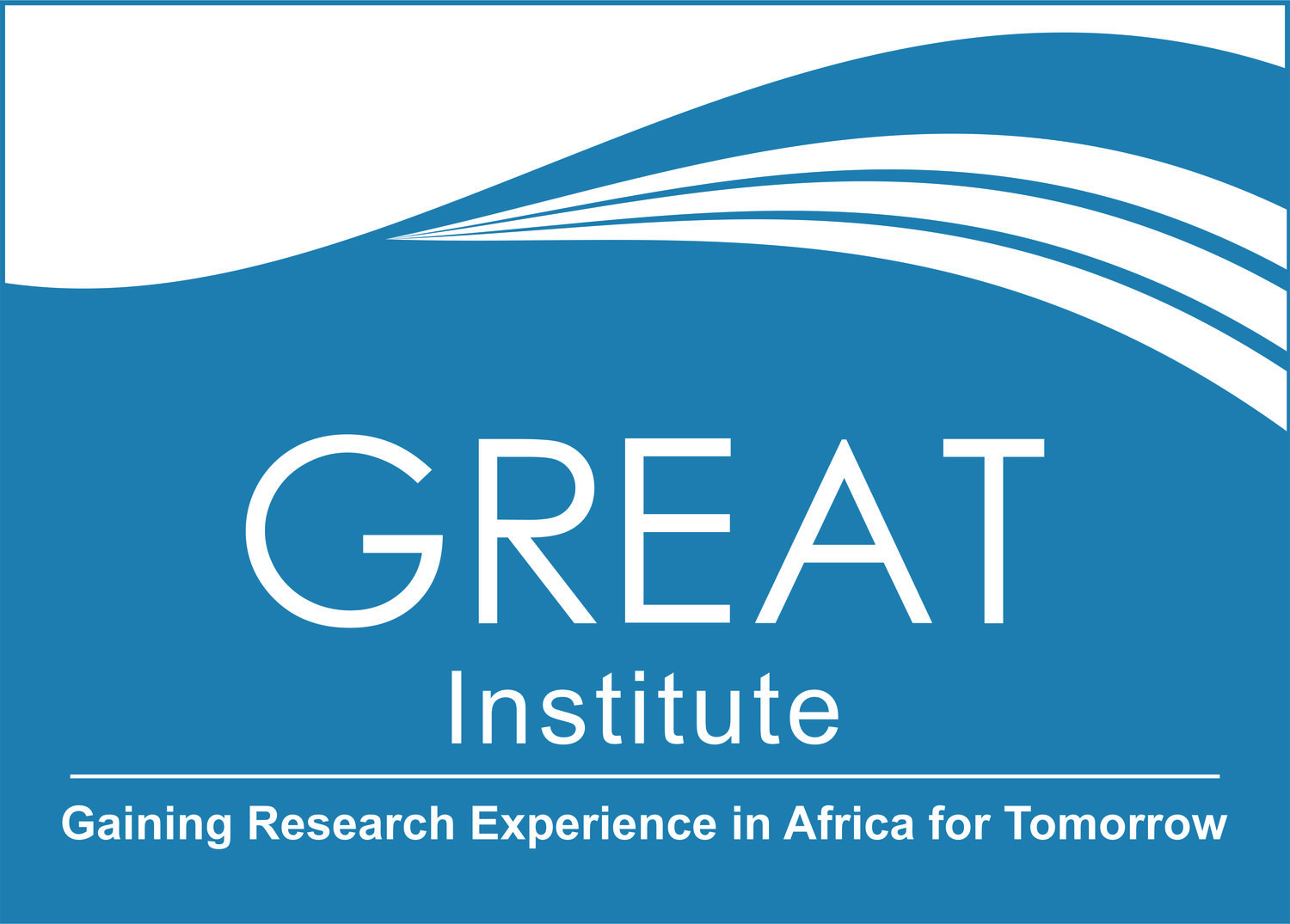GREAT Institute's RREMEDY program
GREAT Institute launched a new field study course in July called Research, Restoration, and Education on Mangrove Ecosystems with Dynamic Youths (RREMEDY), which was funded by Sustainable Ocean Alliance.
The 5 - day field study course had 12 participants from the University of The Gambia. The students were trained in research and presentation skills, watershed management, mangrove ecology, and environmental monitoring. This field course took the students to Sankandi Village located at the Lower River Region by the Bintang Bolong.
The students used local knowledge and scientific knowledge to understand the wetland in that village. At the end of the field study course, students participated in a mangrove restoration activity.
Some of the students and volunteers that participated in the RREMEDY Mangrove Restoration event that took place in Sankandi, LRR, The Gambia on the 23rd July 2022.
All participants also did a final presentation on the various topics:
Mangrove Zonation
Effects of Salinity and pH in Mangroves in Sankandi
Causes of Mangrove Die-back in Sankandi
Solutions for Mangrove Die-back in Sankandi
The students learned about wetland ecosystems during one of the indoor training sessions of the RREMEDY program.
International Coastal Clean-up Day
Established in 1986 by Ocean Conservancy, International Coastal Clean-up Day (ICCD) has been celebrated on the third Saturday in September to mobilise communities and volunteers worldwide to clean up the marine environment. In 35 years, more than 17 millions volunteers have collected more than 348 million pounds of trash. This year ICCD will be on 17 September 2022 and volunteers in The Gambia will collect trash from Barra to Kartong.
Join the Gambia Ocean Heroes as we embark on another successful event.
Some of the Gambia Ocean Heroes volunteers participated in International Coastal Clean-up Day 2021.
The Gambia Ocean Heroes team at the first International Coastal Clean-up Day event on the 15th September 2018.
In preparation for the big event, please contact us at GREAT Institute or Gambia Ocean Heroes to #bepartofthesolution_notthepollution.
Record Heatwaves in June and July 2022
In June and July 2022, temperatures climbed above 40 degrees Celsius in Europe, North Africa, the Middle East, and Asia. The increased temperatures triggered intense wildfires, disrupted transportation, and displaced thousands of people. The record-breaking heat has prompted more dialogue over future climate resilience infrastructure to reduce the problems of melting roads, widespread power outages, and warped train tracks.
According to the National Oceanic and Atmospheric Administration, June 2022 was Earth’s 6th warmest on record with an average global surface (land and ocean) temperature of 0.87 degrees Celsius above the 20th-century average of 15.5 degrees Celsius.
Selected significant climate anomalies and events in June 2022 (NOAA, 2022).
As global sea and land temperatures increased due to climate change in the month of June and July, developed countries started moving forward with climate actions and plans. In July, Government representatives from 40 countries met in Berlin for the Petersburg Climate Dialogue. The purpose of that meeting was to discuss major climate protection agreements and start the preparation for the COP27 World Climate Conference in Egypt. Also, The Biden-Harris Administration, through the U.S. Department of Energy, launched to fund $2.6 Billon to fund two programs that will advance carbon capture and carbon dioxide transport.
So what does this mean for The Gambia and other countries in the Global South? We must prioritize making more climate resilient cities to reduce the vulnerabilities to disasters caused by climate change.
What Happened at the IUCN Africa Protected Areas Congress?
The first IUCN Africa Protected Areas Congress (APAC) was held from the 18th to 23 July 2022 in Kigali, Rwanda following a theme of ‘For People and Nature’. It was hosted by IUCN as well as the African Wildlife Fund and the Ministry of Environment, Rwanda.
The conference was the first of its kind, with over 2,400 participants from 80 countries, gathering to discuss the role of protected areas in regard to the conservation of African nature and wildlife. The objective of APAC is “to position Africa’s protected and conserved areas within the broader goals of economic development and community well-being and to increase the understanding of the vital role parks play in conserving biodiversity and delivering the ecosystem services that underpin human welfare and livelihoods”.
Priority actions were identified, including greater investments in nature conservation as well as an enhanced Pan-African collaboration, which all congregated in the finalised Kigali Call to Action for People and Nature.
The Kigali Call to Action for People and Nature calls specifically for:
The identification, recognition and empowerment of all custodians of nature in Africa (including the indigenous Peoples, local communities, women and youth, etc)
Acknowledgement of past and ongoing injustices experienced when indigenous peoples and local communities have not been accorded their rights
Greater public and private financial investment in nature conservation and protected and conserved areas concomitant with their value and the flow of ecosystem services in the wider production landscapes and seascapes, to support human livelihoods and well-being
A more integrated approach to addressing the climate, biodiversity, health and conflict nexus of issues involving all relevant stakeholders
The full text of the Kigali Call to Action for People and Nature is here: https://apacongress.africa/wp-content/uploads/2022/07/APAC-Kigali-Call-to-Action-Final-230722.pdf






